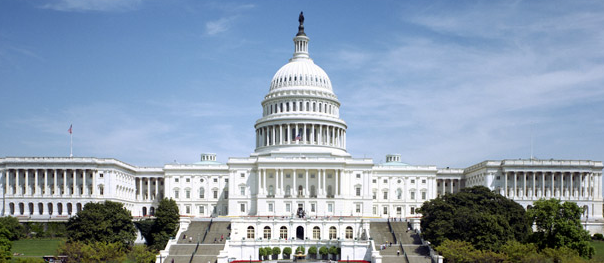About
07 November 2019
For Science’s Sake, the Government Must Approve FY20 Spending Bills
This op-ed by Elizabeth A. Rogan, CEO, The Optical Society was originally published in The Hill on 7 November 2019
Once again, Congress is poised to approve a second continuing resolution (CR) to keep the U.S. government running when the current resolution expires 21 November. As some congressional leaders noted, it is unlikely Congress will reach agreement on any of the 12 fiscal year (FY) 2020 spending bills by the expiration date, raising serious concerns that funding will remain flat for government agencies into, or even through, 2020.

The current CR keeps the U.S. government open but operating at FY2019 spending levels. Even more ominous is the threat of another government shutdown should negotiations between Congress and the White House again collapse. Either scenario presents serious consequences for scientific research if federal agencies delay the rollout of new programs such as the National Quantum Initiative (NQI), a coordinated multiagency effort to support research and training in quantum information science.
Without an FY2020 spending package, several federal agencies that support science risk the loss of funding increases approved by House or Senate appropriators – 10 percent for the Department of Energy’s Office of Science, 5 percent for the National Nuclear Security Administration’s Inertial Confinement Fusion Program, 6 percent for the National Institute of Standards and Technology, 7 percent for the National Science Foundation, and 6 percent for the National Institute of Biomedical Imaging and Bioengineering.
Worse yet is the possibility of another partial government shutdown as memories of last January’s 35-day shutdown, the longest in U.S. history, remind us that even minor disruptions in government funding could have a detrimental impact on important research.
During the 2019 shutdown, many researchers, including members of The Optical Society (OSA), who were awaiting grant funding from the National Science Foundation, NASA, or other agencies affected, suddenly found their research projects on hold. Early career scientists rely on grants to establish themselves and faculty members use grant money to hire and train graduate students, postdoctoral researchers and other laboratory staff. Postdoctoral researchers from outside the U.S. either had to wait in limbo for the situation to be resolved or look for work in other countries.
Those who rely on government data for their research and access to resources found themselves with limited options to continue their work.
For U.S. government scientists, the situation was similarly dire. They were not allowed to work or use government email accounts. Research projects by U.S. government scientists on cybersecurity, climate monitoring, quantum computing and more, came to a halt. Plans to attend or even register for scientific meetings had to be cancelled and scientific instruments in the field were temporarily abandoned. Work on research papers for scientific journals also stopped, meaning critical publishing deadlines were missed and, in some cases, never rescheduled.
The global science enterprise likewise suffers when collaborations with U.S. scientists wither for lack of funding or when international research projects are suddenly missing a U.S. partner. Researchers outside the United States face even greater hurdles obtaining visas to attend scientific meetings in the United States, during a shutdown, leaving organizers of scientific meetings with a substantial loss of attendees.
We urge the Congress and the White House to move swiftly in approving an FY2020 spending package that provides significant funding increases to support advanced manufacturing, quantum information science, artificial intelligence, solar energy, space exploration, medical imaging and many other areas that will benefit the United States and societies worldwide. Congress must act to secure adequate spending increases that will enable our scientific enterprise to support and attract the brightest minds in the pursuit of new discoveries and technologies.
About The Optical Society
The Optical Society (OSA) is dedicated to promoting the generation, application, archiving, and dissemination of knowledge in optics and photonics worldwide. Founded in 1916, it is the leading organization for scientists, engineers, business professionals, students, and others interested in the science of light. OSA’s renowned publications, meetings, online resources, and in-person activities fuel discoveries, shape real-life applications and accelerate scientific, technical, and educational achievement.
Media Contact
